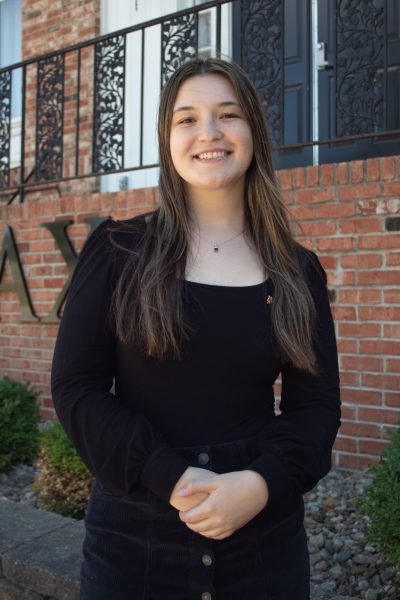Students at Millikin are devoting their time to help create and produce a near-feature-length film.
A student-run venture, 1901 Productions, has partnered with their advisor’s production company, Dial Tone, to create and release the film Sad Boy, Sad Girl.
“It’s a film about the obstacle of self and the tragedy of love,” 1901 advisor and director of the film, Johnny Power, said. “It’s about 20-somethings getting in their own way and not really understanding quite yet who they are, how they operate, and how their relationships work.”
Power came up with the idea for this film when he saw a scene from The Darjeeling Limited.
“There’s a scene in The Darjeeling Limited, which is a Wes Anderson film, where [a character is] talking—he might actually be talking into a recorder—but he’s talking, and he has a cigarette in his mouth as he’s talking,” Power said. “That frame was what started the idea.”
Although Power is the writer and director of the film, students enrolled in 1901 Productions are helping bring his vision to the big screen.
In the pre-production stages, Power created mood boards, a Spotify playlist, color palettes, and all kinds of other resources students can refer back to when creating the film.
“[Students] have pretty much complete autonomy to be as creative as they want, as long as it fits within the vision,” Power said. “So say, for hair, makeup, and wardrobe, they have complete freedom as long as it fits within the context of the story. It’s a collaborative effort.”
Junior Hannah Uebinger is the line producer for this film. This is not her first time taking on a leadership role in 1901, but it is her first time helping out with a film as large as Sad Boy, Sad Girl.
“I am overseeing the entire production as a whole, like the big picture stuff, so all the departments and department heads will report to me to make sure that things are executed,” Uebinger said. “I have eyes everywhere and a hand in everything.”
Making a film at this length requires intense scheduling and meetings. Without everything planned out, filming the piece was going to be impossible.
“The upper production office met probably two or three times a week during pre-production just to iron things out for a few hours per day,” Uebinger said. “And then, as an entire crew, we met once a week for three or four hours, and that was a lot of heavy paperwork stuff, writing things down, taking notes, and contacting people.”
On top of all of that, Uebinger helped teach new members how to run equipment, scout locations, help with casting, and stay in communication with the director.
But it is not only Uebinger who puts in a hefty amount of work; everyone working on the film must devote a large portion of their time to this production. In one of their first shoot days, the crew worked for 12 hours.
The Digital Imaging Technician (DIT) and the first Assistant Camera (AC), Jacob Habel, has been skillfully juggling his leadership role in 1901, school, work, and other organizations he is in.
“I’m taking 16 credits, working a job, working a YouTube channel, and on top of that, I’m in MUPC,” Habel said. “But balancing 1901 as a full-time student this semester, specifically, has been rough with the longer shoots, and sometimes you don’t know how long shoots will be.”
These long days are preparing students for what they are going to be facing if they go into the film industry.
“It’s a good experience to get used to that type of thing, instead of going directly from Millikin to their first production—even an indie set—and they’re like, ‘Whoa, why am I here for 12 hours? I only had a three-hour class on Wednesday,’” Power said.
This film has become a massive time commitment for many students at Millikin. Balancing their schoolwork, personal lives, and extracurriculars is nearly impossible. Students stay in 1901 for many reasons.
“[1901 has] taught me a lot about collaborating as a team with creative problem solving, working on-site with more advanced cameras, and working together as a small film team,” Habel said. “1901 overall has taught me a lot.”
Uebinger wants to work in the film industry after college, so her love for film is what keeps her in 1901, even when it gets tough.
“The thing about film is, if you really love it, there’s nowhere else you’d rather be,” Uebinger said. “Like, it’s hard and it sucks, but there’s nowhere else you’d rather be.”
1901 students don’t get paid, but the class is 1-3 credits, so students aren’t just devoting their time to the experience.
However, the experience the students are getting is the most valuable aspect of the film Sad Boy, Sad Girl.
1901 is open to accepting people of any major or background into their group.
“Since there is such a large, vibrant community of performers on campus, we invite anyone to help out, to pitch, [to reach out] if you have an idea, anything like that,” Power said.
Millikin prides itself on performance learning, and the production of Sad Boy, Sad Girl is a perfect example of why performance learning is so important to Millikin students.


